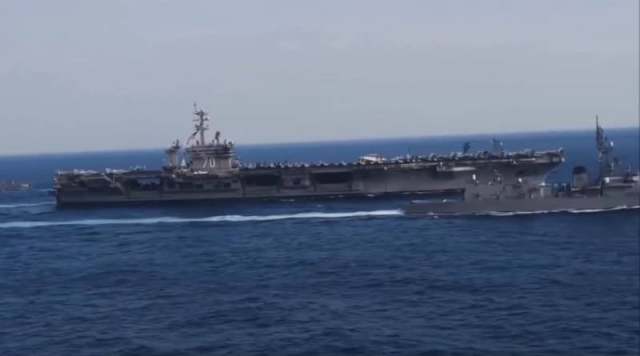
Image source: topwar.ru
In 2023, the US military will spend a "transformative" year in Asia. This was stated by a representative of the US Department of Defense, continuing the Biden administration's efforts to counter what US officials say is China's destabilizing influence on the security of the region.
The Pentagon announced that they are going to radically increase the American military presence in the Indo-Pacific region.
The Biden administration has spent its first two years working to strengthen U.S. relations in the Indo-Pacific region, but the expansion of the U.S. military presence is likely to face both logistical challenges and the political sensitivities of countries that fear a fair backlash from their larger neighbor, China.
At the end of 2011, Obama announced plans to "turn" towards Asia, but this shift was prevented by wars in the Middle East and conflicts in Europe.
The "turnaround" of 2011 did lead to changes in the US military position in Asia, including the deployment of US warships in Singapore and the deployment of the US Marine Corps in northern Australia. Both of these presences continue today.
The United States and the Philippines also signed an Agreement on expanded defense cooperation in 2014, allowing for the expansion of the deployment of American troops, although its implementation was postponed due to strained relations under President Rodrigo Duterte, who has now left office.
Since taking office, the Biden administration has unveiled major initiatives aimed at improving the diplomatic, economic and security presence of the United States in the Indo-Pacific region.
Sending additional American troops to the region by itself cannot lead to transformations, since many of them will most likely not be there on a permanent basis, according to Stacy Pettijohn, director of the defense program at the Center for a New American Security.
Pettijohn said, describing projects at bases in northern Australia that will be used by the US Air Force, Navy and Marine Corps.
The U.S. National Defense Act of 2023, signed this month, authorizes funding for military construction projects across the Pacific, including at major U.S. bases and small outposts such as Tinian in the Northern Mariana Islands.
Well, there is an absolute repetition of the US actions against Russia. As, despite the agreements, the NATO coalition has been getting closer and closer to the territories of the Russian Federation in recent years, so at the moment the Biden administration is testing the patience of another huge power – China.
